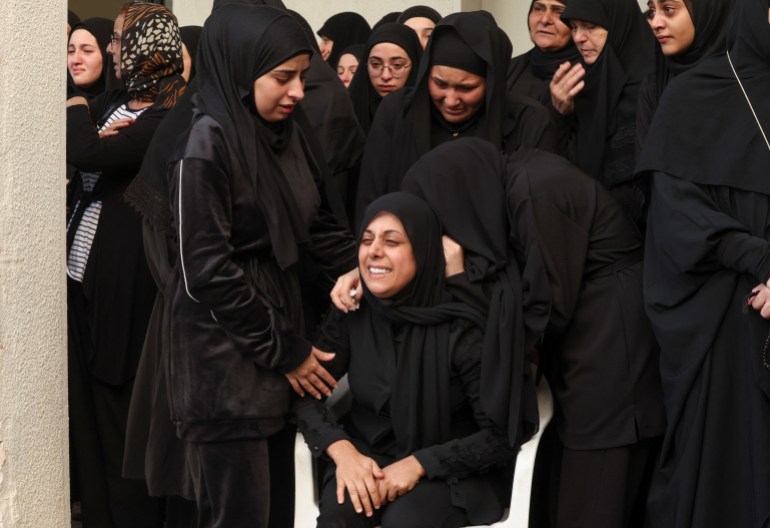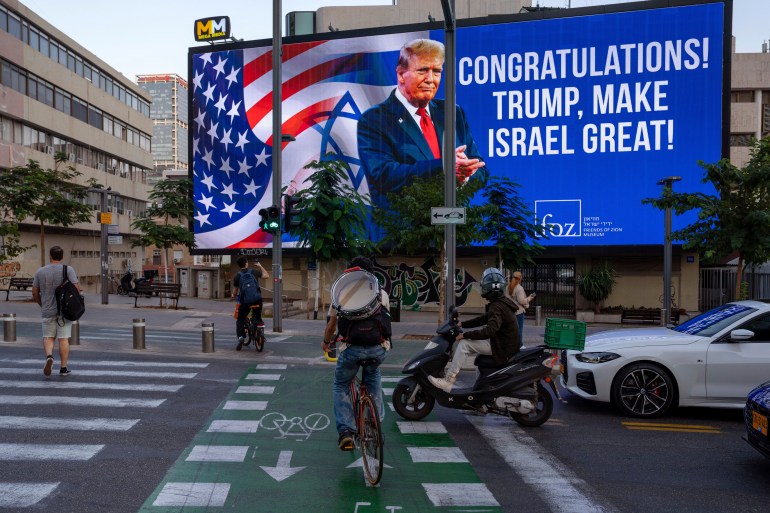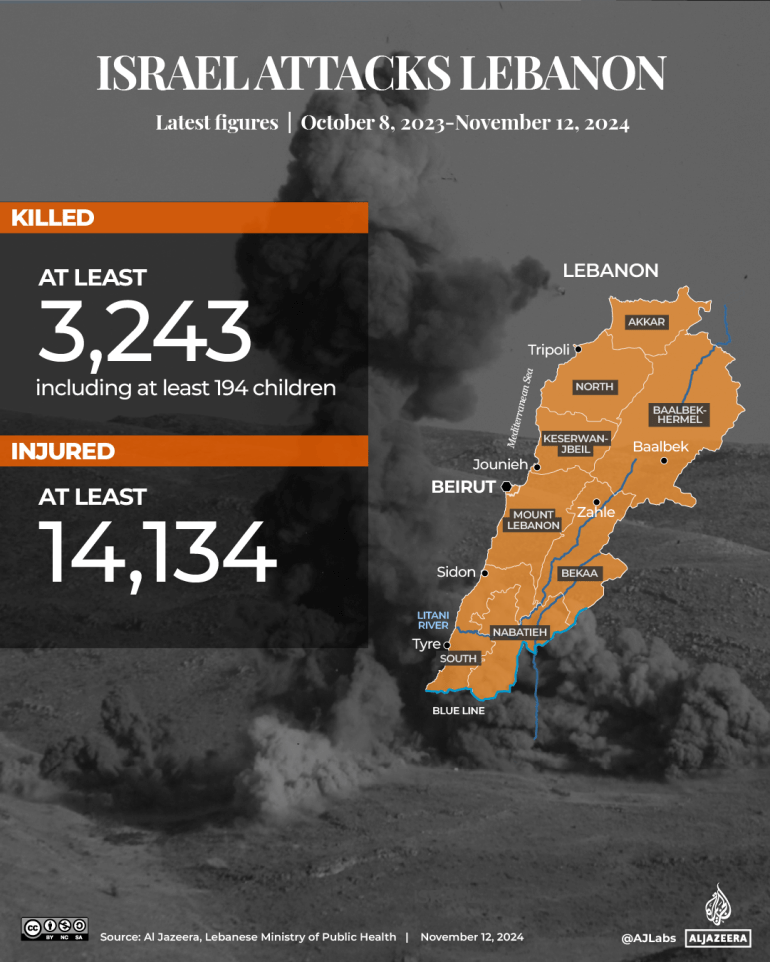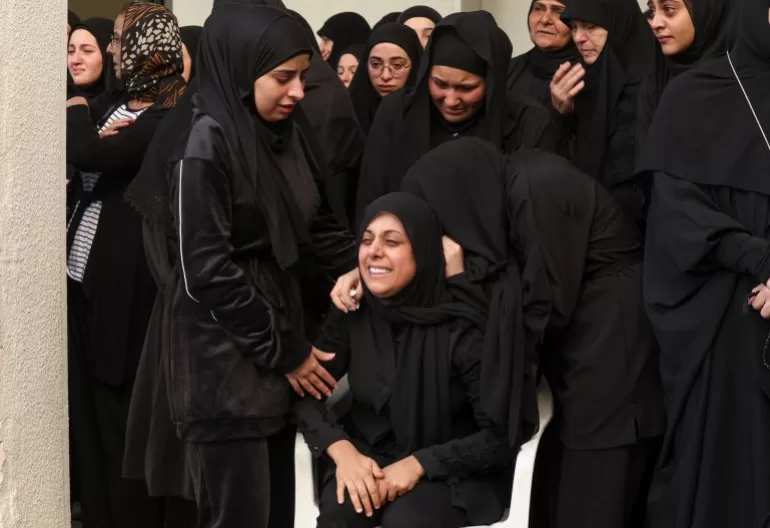Beirut, Lebanon – As Israel sends mixed messages about a ceasefire with the Lebanese group Hezbollah, analysts say the war is likely to intensify in the coming months.
On November 6, Israel’s top general, Herzi Halevi, told reporters the army was drawing up plans to expand its campaign against Hezbollah.
At the same time, he claimed Israel was amping up diplomatic efforts to secure a truce.
Feigning diplomacy
“Israel makes these statements to try and push the blame on Hezbollah,” said Mohanad Hage Ali, a senior fellow at the Carnegie Middle East Center in Beirut.
He is one of many analysts who believe Israel is feigning diplomacy as it prepares to expand an indefinite war on Lebanon. So far, that war has destroyed dozens of border villages, killed more than 3,000 people and uprooted 1.2 million people from their homes.
Israel has used a similar strategy in Gaza as it participated in ceasefire talks with Hamas for more than a year.
Whenever a deal was close, Israel would change its terms even if the proposal at hand was endorsed by its chief ally, the United States.
Israel would then blame Hamas for not accepting the new conditions, all the while expanding its military assault in Gaza, which has killed more than 43,000 people, displaced nearly its entire 2.3 million population and drawn accusations of genocide from UN bodies and experts.
Israel is now applying a similar playbook to Lebanon, Hage Ali said.
“[Calling for a ceasefire] is part of [Israel’s] messaging to the Lebanese and to Lebanon. They’re saying, ‘We want peace, but it’s Hezbollah that doesn’t want it,’” he told Al Jazeera.
Israeli ceasefire terms?
On October 30, Israel’s public broadcaster published a leaked ceasefire proposal by the US government that is believed to reflect Israel’s demands.
The proposal called for Israel to withdraw its forces from Lebanon within the first week of a 60-day ceasefire and for the Lebanese army to “disarm” Hezbollah.
It would also permit Israel to continue attacking targets in southern Lebanon to “respond to future threats”, maximalist terms that analysts previously told Al Jazeera are unrealistic and unacceptable to Lebanon because they risk causing civil war and require Hezbollah’s full surrender.
But Hage Ali doesn’t believe Israel has any intention of scaling back its terms.

“Will Israel be able to accept a deal beneath [its conditions]? I doubt it. There is no indication they will do that,” he told Al Jazeera.
Israel’s terms make it difficult to envision a ceasefire with Hezbollah, according to Karim Emile Bitar, an expert on Lebanon and an associate professor of international relations at Lebanon’s Saint Joseph University.
“Talks of a ceasefire do not appear serious because the conditions amount to a complete and unconditional surrender by Hezbollah, and I do not see either Hezbollah or [its main backer] Iran going along with this capitulation,” he told Al Jazeera.
Buying time
Israeli Prime Minister Benjamin Netanyahu has long been close to US President-elect Donald Trump.
During Trump’s first term as president from 2017 to 2021, he helped Netanyahu bury Palestinian aspirations for self-determination by emboldening Israel’s far-right settler movement.
He moved the US embassy from Tel Aviv to Jerusalem, a move that formally recognised the disputed city as the Israeli capital and broke with decades of American policy.
Trump also appointed David M Friedman, a supporter of Israel’s settler movement, as ambassador before then engineering the Abraham Accords, a normalisation of relations between Israel and four Arab states – Bahrain, Morocco, Sudan and the United Arab Emirates.
The Abraham Accords bypassed the Arab Peace Initiative, the Saudi-led proposal outlining the conditions under which Arab states would normalise ties with Israel, namely the formation of a sovereign Palestinian state on Palestinian land that Israel has occupied since the 1967 war with Arab countries.
With Trump assuming control of the White House in January, analysts believe Israel is dragging out the war on Lebanon until he returns, at which point it will significantly intensify its assault on Lebanon.
“With President Trump appointing hardliners [to his administration], Israel is receiving signals to intensify its approach,” said Imad Salamey, a professor of political science at the Lebanese American University.
Hezbollah’s calculations
Hezbollah is unlikely to surrender and is prepared to fight Israel for a prolonged period, Nicholas Blanford, an expert on Hezbollah with the Atlantic Council think-tank said.

“It will be important from Hezbollah’s perspective that it comes out of this with an agreement in which it doesn’t look like Israel has won,” he told Al Jazeera.
Blanford noted that Hezbollah is still fighting, launching missiles into northern Israel and confronting Israeli soldiers making incursions into Lebanese territory.
In his view, Hezbollah would welcome Israeli plans to expand its ground invasion because it would require it to use armoured vehicles rather than marching into Lebanese territory on foot.
He explained that armoured vehicles and tanks are too heavy to drive up and over the hilly terrain in southern Lebanon and, therefore, will need to stay in the valleys, making them vulnerable to explosives and ambushes from the hills.
He also feels Hezbollah will push ahead regardless of the massive humanitarian crisis Lebanon is facing.

“I don’t think Hezbollah will soften their demands to achieve a ceasefire more quickly so that they can start to address the social welfare needs of their constituents,” Blanford said.
Whenever the group suffers a major blow, it calls on its supporters to remain patient and steadfast and is likely to issue the same call this time to its supporters, who are mostly from Lebanon’s Shia communities and have lost homes, livelihoods, friends and loved ones.
Lebanon runs on a system in which political posts are allocated based on the sect and Hezbollah has consolidated control over the Shia community by mixing resistance against Israel, religion and identity into a doctrine that resonates with many.
Blanford believes Hezbollah will keep calling on its constituents to remain steadfast until Israel agrees to a more acceptable ceasefire proposal.
“It is more likely they come out of this war with a face-saving deal. Everything else is secondary to that.”
